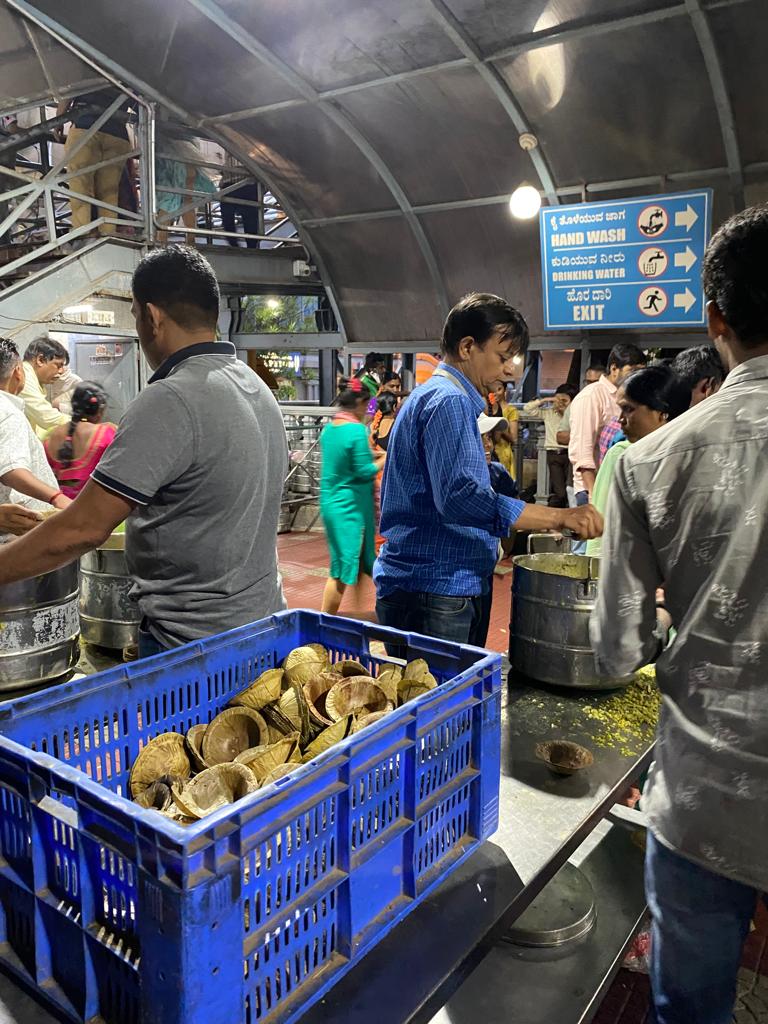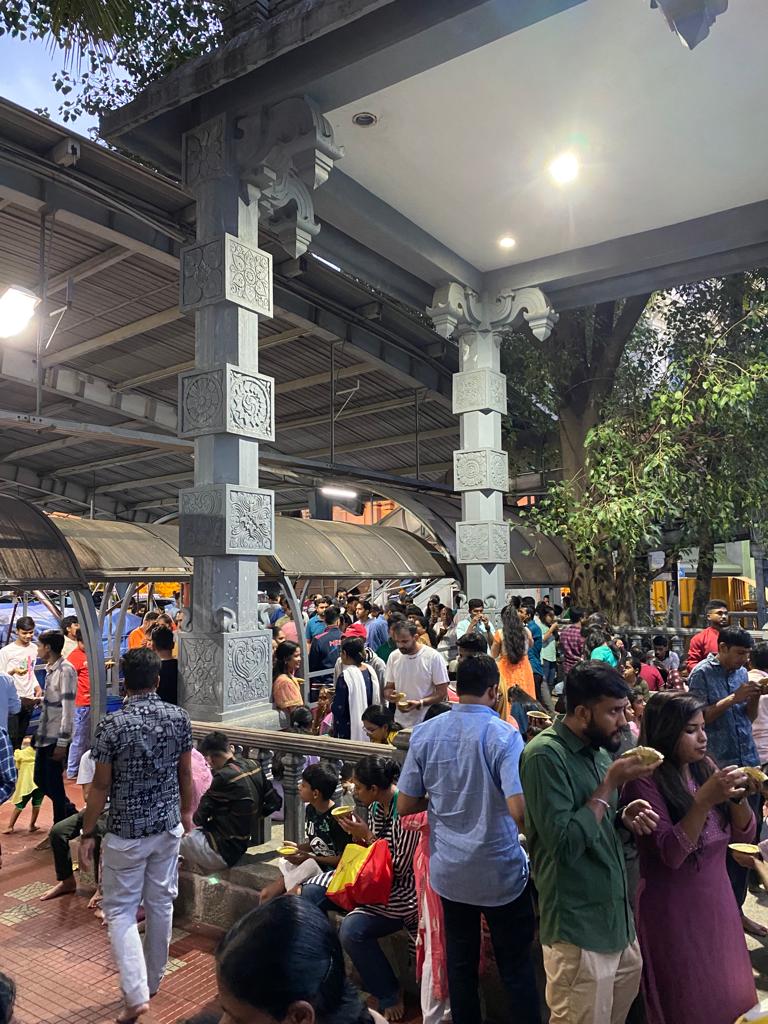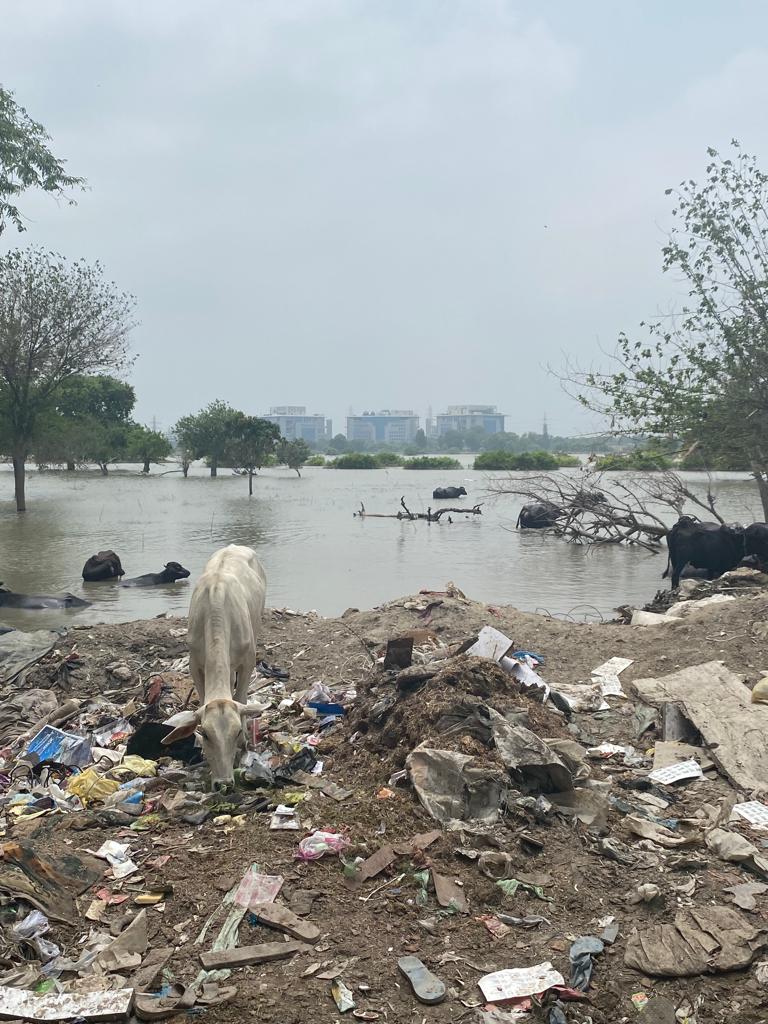By Belen Fodde, 8/23/2023.
As an Argentinean doing her primary research in Argentina, it may be hard to understand how a travel and research grant to India can contribute to my academic endeavors. But the truth is that India and Argentina, while different in many aspects, share a lot of the challenges and also initiatives taking place in urban areas, particularly in social policy. I suspected this when applying for this student research grant, but after experiencing it I have to say I found many similarities between our societies and our ways of inhabiting cities.
In this context, I tried to learn as much as I could from researchers working in India, some of them on topics directly related to my dissertation research and some others working on issues that I have also focused on during my graduate and doctoral studies. So, I met with several researchers from the Indian Institute for Human Settlements (IIHS) based in Bangalore and Delhi, and with members of the team of SPARC (Society for the Promotion of Area Resource Centers), based in Mumbai. I will reflect now on how their experiences and findings have helped me rethink my methodological and analytical approaches for my doctoral research and other past research projects.
One of the main interests I had in working with IIHS researchers was getting familiar with their approach on food security measurement in Indian cities. I was aware that as part of the Hungry Cities Partnership there had been work done on the implementation of a survey measuring food insecurity in Bangalore and this caught my attention as it matches one of the components of my dissertation. As part of my fieldwork, I conducted a survey to residents of the Buenos Aires neighborhood where I worked, and I collected information related to their income, expenditures, the government and non-state actors’ food assistance, and their self-reported experience on food security. Then I had the opportunity to meet with Shriya Anand, researcher at IIHS that worked on the implementation of this survey and that shared with me some impressions on the efficiency of it, how to expand the findings resulting from the survey, as well as methodological aspects worth reflecting on. Even though some elements are specific to the Bangalore or the Buenos Aires cases, the methodology and the potential analysis to be done are similar.
While in Bangalore I also meet with Sheetal Patil and with Jagdish Krishnaswamy, who together gave me extremely valuable insights on IIHS sustainability initiatives -I will talk about this in another blog post- and on Indian social policy in relation to food assistance. Jagdish gave me really good suggestions such as visiting Indira Canteens in Bangalore and temples in Delhi and Bangalore as well -all of which I visited and were super interesting experiences-, while also sharing some reflections on the sustainability aspects of food policy and the actors involved in food distribution. Sheetal, besides visiting the IIHS Kengeri campus with me, gave me a deep explanation of social and food policy in India, particularly on food distribution and the Public Distribution System, the functioning of ration cards, as well as cooperatives and Indira Canteens. This was key for me to understand some of the implications of research initiatives and findings such as the food security survey. In Bangalore I also met with Aditi Surie who shared with me the work they are doing on the gig economy, the role technology is having on accessing goods and services, and the formalization of work.


Towards the end of my trip, I met with Rashee Mehra in Delhi, and we shared many aspects of work. To begin with, she shared with me their experiences and reports covering government and organizations’ assistance during COVID-19. I was particularly interested in knowing what the situation was in Delhi because I worked on research projects registering the assistance provided in neighborhoods in Buenos Aires and in housing projects in the Bronx. But also, the organization and the interaction between non-state actors and government agencies is of interest to me because of the nature of my dissertation. In addition to this meeting, I joined her on a very interesting site visit to a village in Delhi that suffered the effects of the floodings in July. IIHS is currently working on a report covering the assistance provided to these communities and as part of it they are working on data collection on the ground to understand the main challenges faced. When I joined Rashee on the visit I saw the process of data collection in a crisis’s context, and even though conversations were held in Hindi I could get an idea of the main struggles and the lack of government assistance to these communities.

About IIHS, I want to mention that most of these meetings wouldn’t have been possible without the help of Neha Samid who also gave me an overview of IIHS work and helped me strategize how to make the most of this experience.
Finally, while in Mumbai I had a meeting with Vinodkumar Rao, researcher from SPARC, an organization that focuses on working with the urban poor and some of the challenges they face such as evictions and access to housing. Getting to know the experience of SPARC was very meaningful as I am familiar with the work of slum dwellers and data collection because of my previous work with Slums Dwellers International in Cape Town, and it was particularly interesting because they work in two food access programs: one related to the provision of basic food and staples, and the other one related to nutrition and tuberculosis. The specifics of these programs gave me good insights to think about policies or programs that can be put into place, as some of the challenges in relation to food access, their impact on health, and the strategies and tools to distribute it. Some of the challenges faced by Indian slum dwellers are very similar to the ones encountered by the communities I work with, and that is why learning from these experiences I can enrich my own project.
All of these interactions and sharing of materials and findings are extremely helpful to my work, as many of the insights shared by the researchers on their findings or their process of data collection and analysis. Many of these experiences are very useful to my dissertation process, even though as I mentioned the Indian and Argentinean contexts may differ.
